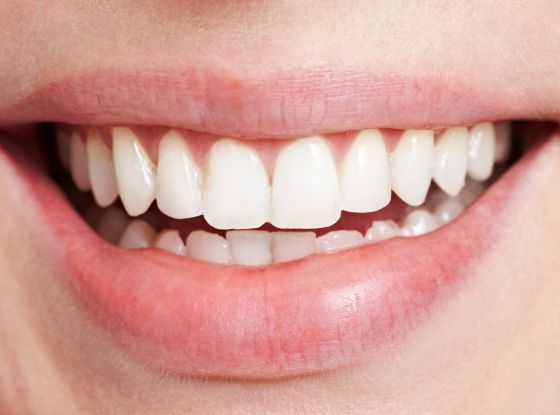The Top Benefits of Professional Teeth Cleaning

The Top Benefits of Professional Teeth Cleaning at Clear Smile Dental Care
Maintaining a bright, healthy smile involves more than just brushing and flossing at home. Professional teeth cleaning is an essential part of dental care that can have a significant impact on your oral health. At Clear Smile Dental Care, the best dentist in Highlands Ranch, CO, we emphasize the importance of regular professional cleanings to help you achieve optimal dental health. Here’s a breakdown of the top benefits of professional teeth cleaning and why it should be a part of your routine.
1. Prevents Gum Disease
Gum disease, also known as periodontal disease, is one of the leading causes of tooth loss in adults. It starts with plaque and tartar buildup along the gum line, which can lead to inflammation and infection. During a professional teeth cleaning, your dentist or hygienist removes plaque and tartar that regular brushing and flossing may miss. This helps to prevent gum disease, keeping your gums healthy and reducing the risk of more serious oral health issues down the line.
2. Removes Stubborn Stains
Even with regular brushing, many people still struggle with stubborn stains on their teeth from foods, beverages, or smoking. Coffee, tea, wine, and certain fruits can leave behind stains that are difficult to remove with at-home care. Professional teeth cleaning uses specialized tools and techniques to remove these stains, leaving your teeth brighter and more polished. Regular professional cleanings can help maintain a whiter smile over time.
3. Reduces the Risk of Cavities
Cavities form when plaque and tartar build up on the teeth, causing tooth decay. While brushing and flossing help prevent plaque buildup, they may not reach every area of your mouth effectively. Professional cleanings eliminate plaque buildup in hard-to-reach areas, reducing the risk of cavities. By removing harmful bacteria and debris, a teeth cleaning ensures that your teeth remain strong and healthy, lowering the chances of tooth decay.
4. Improves Overall Health
Oral health is closely linked to overall health, and maintaining healthy teeth and gums can have a positive impact on your body. Studies have shown that gum disease is associated with various systemic health issues, including heart disease, diabetes, and stroke. By keeping your teeth and gums in good condition through regular professional cleanings, you’re helping to protect your overall health. At Clear Smile Dental Care, we understand the connection between oral and general health, which is why we emphasize the importance of cleanings as part of a comprehensive wellness plan.
5. Detects Early Signs of Dental Problems
During a professional teeth cleaning, your dentist or hygienist doesn’t just clean your teeth – they also examine your mouth for signs of potential problems. This includes early indicators of gum disease, cavities, oral cancer, and other issues that might not be visible to you. Detecting these problems early allows for more effective and less invasive treatment. Regular cleanings are an opportunity for your dentist to monitor the health of your teeth and gums, catching any issues before they become more serious and costly to treat.
6. Freshens Your Breath
Bad breath, or halitosis, is often caused by the buildup of plaque and bacteria in your mouth. Even if you brush and floss regularly, these bacteria can linger in hard-to-reach areas. A professional teeth cleaning removes plaque and bacteria, leaving your mouth feeling fresh and your breath smelling better. If bad breath is a recurring issue for you, professional cleanings can help eliminate the root cause and keep your mouth clean and odor-free.
7. Helps Maintain a Beautiful Smile
A healthy smile goes beyond just brushing your teeth at home. Regular professional cleanings help maintain the appearance of your smile by keeping your teeth free from stains, tartar buildup, and plaque. Not only will your smile look better, but you’ll also feel more confident knowing you’re taking good care of your teeth. If you’re looking for a brighter, more beautiful smile, professional cleanings are an essential part of the equation.
8. Saves Money in the Long Run
While professional teeth cleaning is an investment in your oral health, it can actually save you money in the long run. Regular cleanings help prevent the buildup of plaque and tartar, which can lead to more serious dental issues, such as cavities, gum disease, and even tooth loss. By catching and addressing these issues early, you can avoid expensive dental procedures like fillings, root canals, or tooth extractions. Regular cleanings are a proactive approach that ultimately saves you from costly treatments down the line.
9. Strengthens Your Teeth
Professional cleanings not only remove harmful bacteria but also help to remineralize your teeth. The process of cleaning can help strengthen your enamel, which is the protective outer layer of your teeth. Strong enamel is essential for keeping your teeth resistant to decay and wear over time. The fluoride treatment that often accompanies a professional cleaning also helps to strengthen enamel, ensuring your teeth stay strong and healthy.
10. Provides a Boost of Confidence
After a professional cleaning, you’ll likely notice that your teeth feel smoother and look brighter. This boost in appearance can do wonders for your confidence. Whether you’re preparing for a big presentation or simply enjoying time with friends, a clean and healthy smile can make you feel more self-assured. Regular cleanings ensure that your smile stays in top shape and helps you feel your best every day.
Why Choose Clear Smile Dental Care, the Best Dentist in Highlands Ranch, CO?
At Clear Smile Dental Care, we are committed to providing the highest quality dental care in a comfortable and welcoming environment. Our team of experienced professionals offers thorough teeth cleanings that help maintain your oral health and ensure your smile remains beautiful for years to come. Whether you’re due for a routine cleaning or need more advanced dental care, we’re here to help.
Schedule Your Appointment Today
If you’re due for a professional cleaning, don’t wait! Contact Clear Smile Dental Care, the best dentist in Highlands Ranch, CO, today to schedule your appointment. Let us help you achieve and maintain a healthy, radiant smile with our expert dental care.








